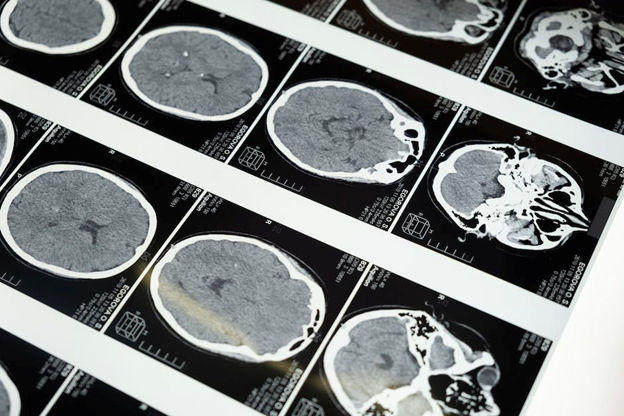Detox can be a word that is said often but not always fully understood. Addiction is a severe disease that directly affects individuals as well as their loved ones. Repeated substance use changes the brain in drastic ways so we created this article to help anyone struggling with the biology of detox for addiction. As a result, addiction can interfere with an individual’s ability to function normally in their daily life. Once a chemical addiction develops, the brain is wired to repeatedly seek substance use. Before an individual can begin treatment for substance use, they will likely have to go through detox.
It is important for individuals and their loved ones to understand the process of detox in treatment. Understanding will help them learn why detox is a vital part of one’s recovery.
What Is Detox?
Detox for addiction is the process of removing chemical toxins, alcohol, and drugs from the body. Addiction causes a physical need for continued use of substances. On a cellular level, our bodies begin to rely on substances. Before an individual begins a treatment program, they must rid their bodies of remnants of substance use.
However, when these substances are removed from the body, an individual can experience intense withdrawal symptoms. Some common withdrawal symptoms may include:
- Hallucinations
- Anxiety
- Agitation
- Insomnia
- Nausea/vomiting
- Headaches
- Seizures
- Depression
- Diarrhea
These symptoms can range from mild to severe, generally decreasing in intensity over time. The intensity of withdrawal symptoms experienced during detox is dependent on various factors, including:
- Type of substances used
- Severity of use
- Amount of use
Due to the severity of this process, we believe that detox should be completed under the guidance of a physician. At Buena Vista, we offer medically supervised detox with a highly qualified team. Medically supervised detox is not only safer, but it is also more comfortable and effective for the client. If you are nervous about the process for you or your loved one, that’s ok and normal.
The Brain During Addiction
People with addiction are compulsive towards substances. This is because addiction is a complex disease that interferes with our thoughts, emotions, and behavior. Addiction mainly affects the brain in two ways:
- It hijacks the brain’s reward center. The brain’s reward center is fueled by dopamine. Dopamine is a neurotransmitter that allows us to feel pleasure when released into the brain. When our brain is functioning healthily, it will release dopamine as we engage in healthy behaviors. However, for those struggling with an addiction, the brain will experience abnormal dopamine surges as a result of substance use. Once an individual is exposed to these dopamine surges, their brain will repeatedly identify and remember substance use as pleasurable. Such pleasure will motivate negative behavior.
- It decreases prefrontal cortex activity. This part of our brain is important for decision-making. Repeated substance use diminishes functioning in this area, making it harder for individuals with an addiction to make sound decisions. Without the prefrontal cortex functioning well, we are mentally incapable of making well-informed decisions, even when we are aware of the potential consequences of our actions. Unfortunately, this can lead to devastating results.
The Brain During Detox
While detox may seem like a small step toward treatment, it can pave the way for successful change. During detox, many complex processes occur while our bodies and brains return to a balanced state. This is directly related to the physical changes listed above that occur during addiction. Our brains and bodies become used to these substances being in our system. When we take substances away, the body has to adjust.
The basic concept is that our bodies are always looking for a balanced state called homeostasis. As our systems change through addiction, our homeostasis becomes dependent on substance use. When we take those away, the brain and body need to find this balance without substances.
Alcohol Withdrawal
One example of this is found in alcohol withdrawal (AW). Researchers have studied AW to better understand the affected parts of our nervous system. One example is the reaction of a specific receptor, GABAA, to the presence of alcohol. Cells throughout the body have receptors on them that do a variety of things. These cells vary between systems and can create or inhibit action in a cell. GABAA, receptors have been found to decrease in total and change how the receptor functions with the molecule that it normally interacts with, GABA.
There are multiple ways in which detox is occurring on a biological level in the body. While more research is needed to better understand how specific cell functions are impaired, the changes that have occurred on a molecular level show how detox for addiction is truly a biological process. Symptoms of withdrawal result from biological changes as the brain and body heal from the damaging effects of substance use.
Although we cannot change our substance use past, we can work to understand our biological processes that have suffered at the cost of our substance use. Understanding how our substance use has affected our biological functioning can enhance our need for detox. Detox is the process of withdrawing safely from chronic substance use. While detox can seem daunting and scary, realizing that our bodies are created to heal themselves can motivate the recovery process. Here at Buena Vista, we offer medical detox and various treatment programs to help kickstart your treatment journey. Our goal is to help you break free of addiction and live a happy and fulfilling life. If you or a loved one is struggling and looking for a way out, call us today at (480) 741-9414. We are here to help you find freedom from your addiction.




